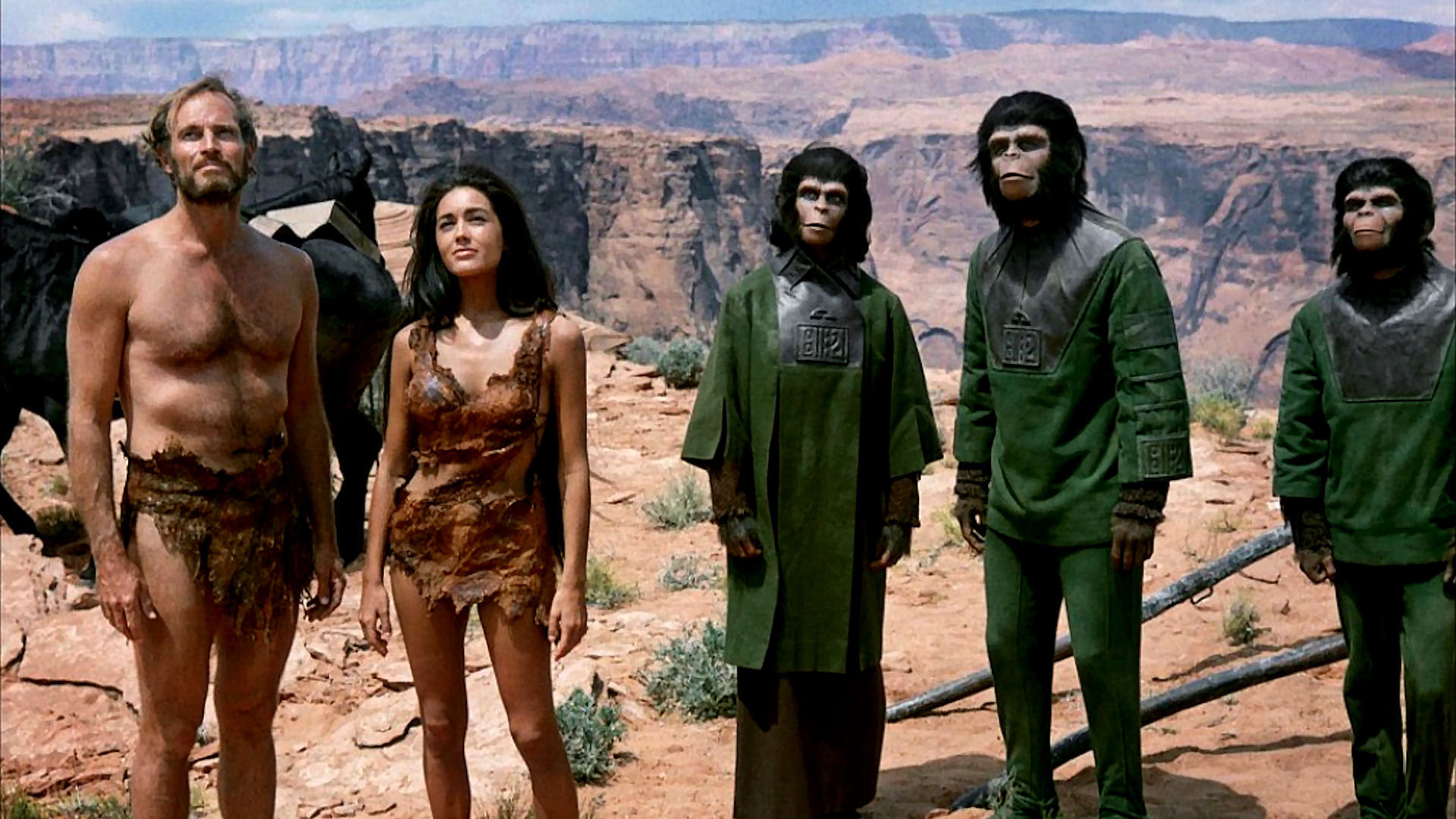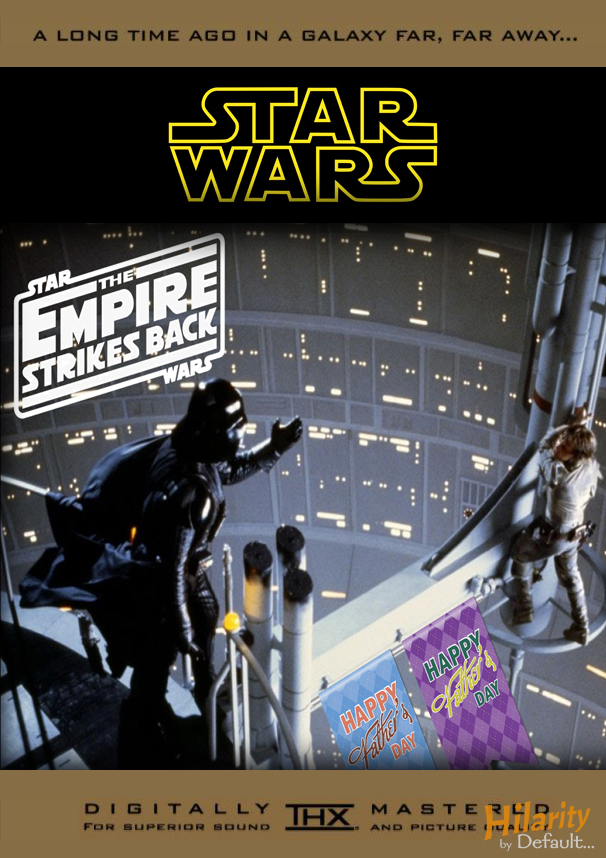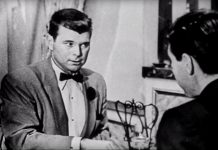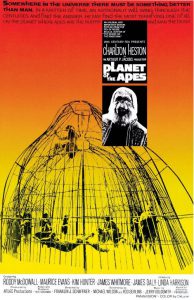 [Major spoiler warning for the few on this planet who are somehow unaware of the endings to this film, the 2001 remake, The Bridge on the River Kwai (1957), Close Encounters of the Third Kind (1977), and The Empire Strikes Back (1980).] When The Twilight Zone‘s Rod Serling co-adapted Pierre Boulle’s novel, Planet of the Apes, in 1968, even the plot-twist master himself couldn’t have predicted the phenomenon that would overcome the whole…well…planet. Fifty years later with a total of nine films in the franchise (including one disastrous Tim Burton remake and the acclaimed recent reboots), two separate television incarnations (one live-action, the other animated), countless book sequels, novelizations, and graphic novels, plus an upcoming Malaysian theme park attraction, the series is still going as strongly as ever – perhaps even more so.
[Major spoiler warning for the few on this planet who are somehow unaware of the endings to this film, the 2001 remake, The Bridge on the River Kwai (1957), Close Encounters of the Third Kind (1977), and The Empire Strikes Back (1980).] When The Twilight Zone‘s Rod Serling co-adapted Pierre Boulle’s novel, Planet of the Apes, in 1968, even the plot-twist master himself couldn’t have predicted the phenomenon that would overcome the whole…well…planet. Fifty years later with a total of nine films in the franchise (including one disastrous Tim Burton remake and the acclaimed recent reboots), two separate television incarnations (one live-action, the other animated), countless book sequels, novelizations, and graphic novels, plus an upcoming Malaysian theme park attraction, the series is still going as strongly as ever – perhaps even more so.
After a long deep space voyage, three astronauts are awaken from hibernation when their spaceship crash lands on a seemingly barren unknown planet. Upon determining that 2,000 years have passed since their original departure from Earth, the astronauts, under the sardonic guidance of Captain Taylor (Charlton Heston), are soon captured, separated, and round up as cattle by an intelligent race of apes. Discovering that on this planet, apes have evolved into the dominant species leaving the human population in a primitive, language-less state, Taylor futilely attempts to communicate with his furry overlords. Unfortunately, an ill-timed throat injury, ape religion and politics, and a species-based caste system (e.g. gorillas are the soldiers; chimpanzees are the intellectuals) all stand in his way.
Planet of the Apes sports several factors that work in its decisive favor: incredible ape make-up effects (for which it won a well-deserved honorary Academy Award), a chilling, visually momentous final twist (more on that later), and an ominous social message that still rings true today that cautions against the swerving dangers of fundamentalism, bigotry, class, and war. Much of this is communicated in a curiously blunt manner through Heston – the cynical everyman fed up with the plagues of modern-day humanity doomed to ultimately bemoan the loss of humanity. Subtlety is a concept lost in this film from the speechifying anguish of its star to its explicit commentary (a direction that strangely works under Heston’s commanding presence).
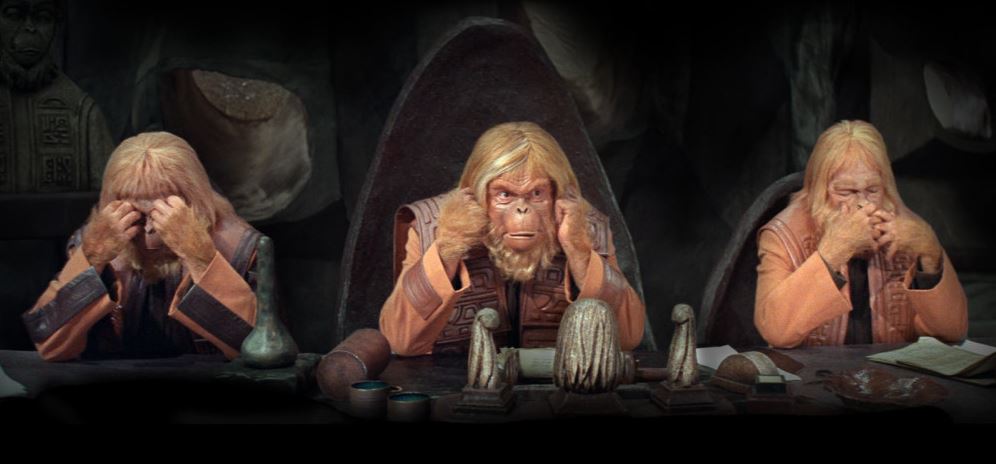
Gratefully, it never fully crosses the line into patronization; rather, the film achieves a good balance of intrigue and action amidst its dogmatic clashes and (metaphorical) kangaroo trials that sufficiently mask its more conspicuous moralizing.

Director Franklin J. Schaffner (whose next project, the Best Picture-winning Patton, would also explore similar themes), conducts a well-paced, beautifully shot production. From the unworldly shots of the astronaut’s initial canyon walk to the masterful first reveal of the apes in a cornfield (a scene that may have inspired the velociraptor attack in The Lost World: Jurassic Park), Schaffner sets a compelling stage whose most dated components are the limitations of late-60’s special effects (a freak overhead lightning storm serving as perhaps the most antiquated example).
[Aforementioned spoilers ahead.] As an adaptation of the novel, Planet of the Apes hits most of its marks well. Its most prominent change, however, would be the film’s famous ending. The book’s original twist (which can be read here), while clever, could never be adapted onscreen without appearing as hokey, telegraphing the ending, or coming across as an inconceivable cheat (ironically, Burton’s version would stray much closer to the novel in this aspect and we all now know how well that turned out).
The change was a simple masterstroke and still resonates as one of the most memorable twists in cinema a half-century later – so much so that most home video copies actually feature it prominently on their covers!
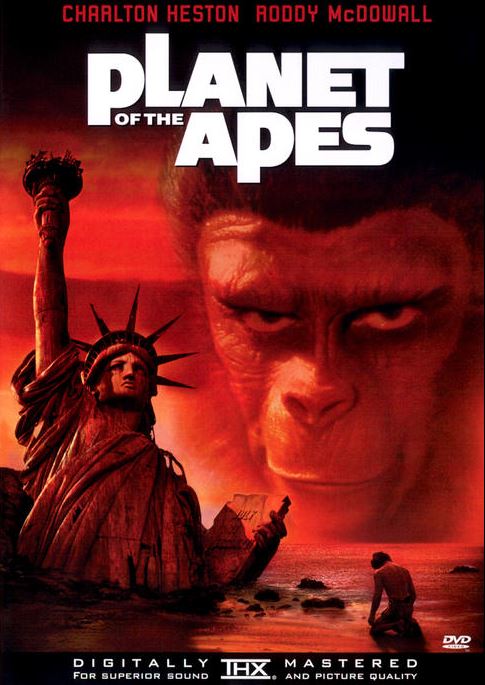
This is a practice that I particularly despise. A desecration of story in favor of marketing that unfortunately has become a standard practice for many classic films. Ever wonder what happens to the titular Bridge on the River Kwai?
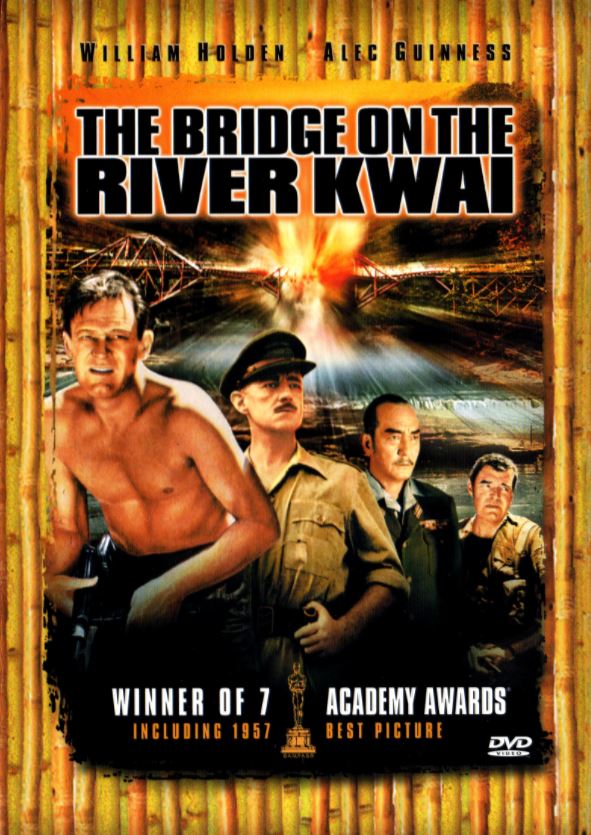
Or are you looking forward to the 40th anniversary release of Steven Spielberg’s masterpiece, Close Encounters of the Third Kind? Well, avoid the poster at all costs.
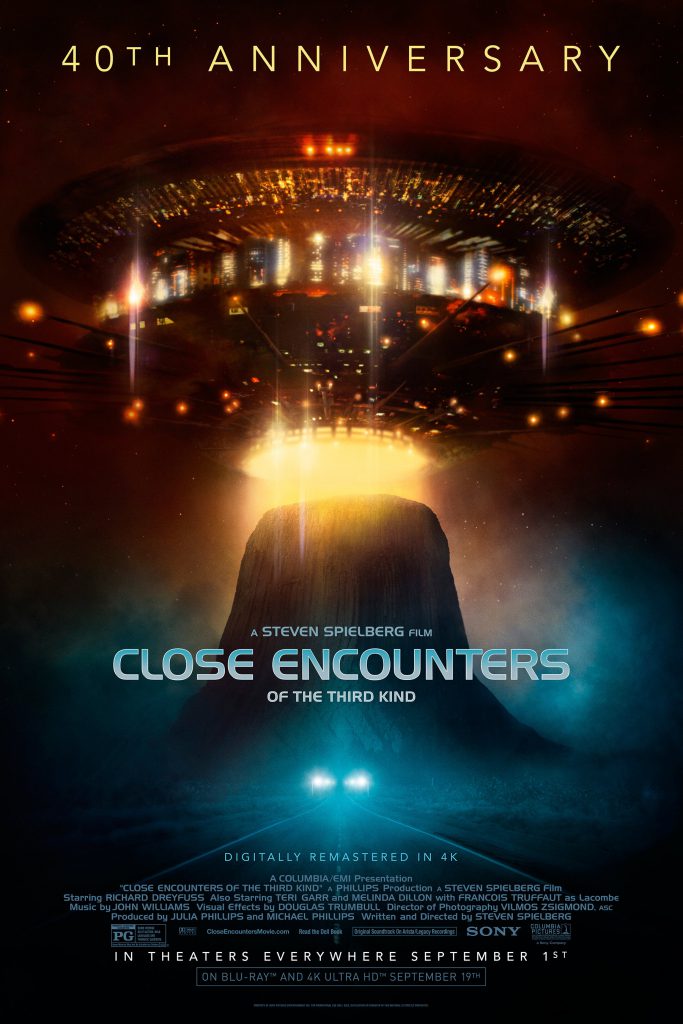
Makes me wonder what other movies could be spoiled in similar ways.
Partly due to this plus years of satire, the iconic imagery of Apes ending has become many people’s primary gateway to the film, sadly robbing it of much of its impact and the overall mystery of the story. Of course, there could always be worse first encounters. I distinctly remember many years ago when I noticed in the TV Guide (yes, back when people actually used such things) that Planet of the Apes was playing on Turner Classic Movies. I had already missed the first twenty minutes or so but I decided to tune in anyway. As fate would have it, I turned the channel only to find the three fully naked astronauts skinny-dipping with one literally yelling, “Yay, yay, yay!” as his pale rear end jumped into a lake. Needless to say, it would be a few more years before I ventured back to the Planet.
Overall, Planet of the Apes may not be a perfect film but it is an inspiring one. Roddy McDowall (who would go on to appear in many more entries in the series) and Kim Hunter both turn in excellent performances as chimps sympathetic to Heston’s plight and largely make up much of the heart in the picture. Their passionate performances convincingly bleed through their ape makeup to thoroughly sell the concept and, amusingly, the pair come across as far more human than Heston’s overdone dramatics and crazed belly laughs. To cite the film’s most famous line, they may be “damn, dirty apes,” but they are also pretty damn appealing nevertheless.














